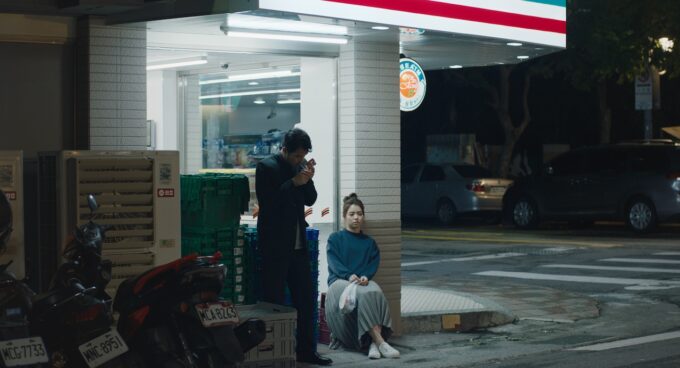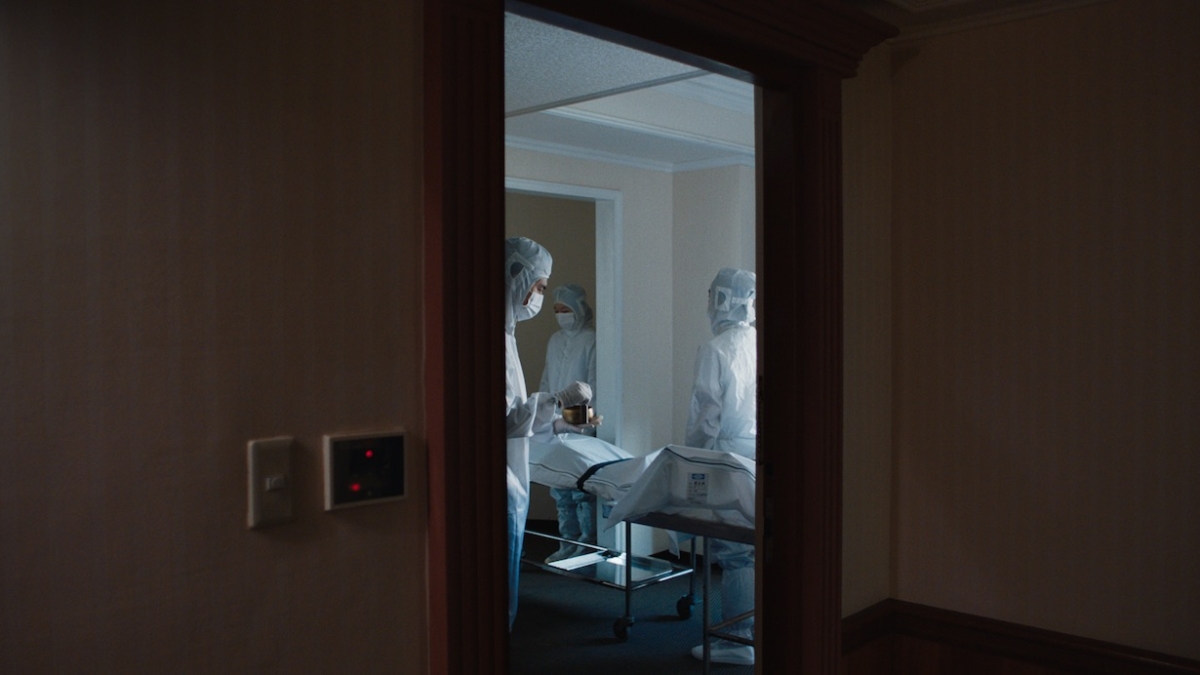Forty minutes between life and death
Written By: Demi Guo
Content Warning: This article contains deep analyses and discussion of the nature and morality of suicide, which is the core theme of the film.
The film starts with gunshots in a hotel room. A team in protective gear comes to collect the body. They speak with the receptionist. You realize it’s a regular occurrence at this hotel. You realize that this film is about a hotel where residents go to spend a night, consider their decision and die by suicide.
KEFF, the director, has seen a pattern of suicide stories in the media followed by a call for suicide awareness. “We’re desensitized to suicide in films,” KEFF writes in a press kit. “… I think we recognize its sadness, but it doesn’t haunt us the way it could — just like in real life.”
Fatigued and thoughtful, he made “Taipei Suicide Story.” In the film, the cold and indifferent hotel receptionist, Zhi-Hao (Tender Huang), strikes up an unlikely friendship with a hotel guest (Sung Yuhua) who has been reconsidering her decision to die.
It’s meant to question not just how media shapes our perspective of suicide, but also how the world at large views it. “Is suicide objectively, morally wrong?” KEFF asked in an interview with CineVue.
“What might be more disturbing than a film where suicide is this great awful act is a film where suicide is seen as routine and ordinary,” KEFF wrote. “My hope is that the film protagonist’s struggle to care for a relative stranger and to find compassion, humanity and activeness in a cold world might be able to traumatize its audience into feeling something they have never felt before.”
KEFF said he got a lot of comments that show how much of a gray, liminal space the film is — even the runtime is 40 minutes, between the expected 25 minutes of a short film and the hour mark of a feature film.
That’s the whole point, he said. It’s about that pause as his characters reconsider their life and death. He suspends them in time. They go to a 7-Eleven together and look through instant noodles in the middle of the night. KEFF’s own feelings as a Taiwanese American living in his ancestral home burst through the seams of this fluorescent nighttime scene.
Taiwan’s 7-Eleven was a literal candy shop — and then some — to KEFF as a child. They’re not like the ones in America. They have a hot selection of seafood where you pick your steamed seaweed and fish balls to go. They are decked with Asian snacks. And their medley of instant noodles is definitely something to write home about.
KEFF returned as an adult, and though nothing had fundamentally changed, the experience aged with him. “It’s different when it’s 3 a.m.,” he said. There’d be exhausted artists like him and businessmen still in their suits.

This film is his way of exploring his homeland. He has noticed that his audience has said it’s also a very Taiwanese story, though they also commented that its shooting and storytelling style are more American. When KEFF went to live in Taiwan, he made an effort to not be an expat — he made local friends, he stepped out of his comfort zone. He inherited a part of his homeland’s developing legacy: “In my attempts to reconnect with my estranged hometown, I discovered the country, particularly its youth, has fallen into existentialism, with indifference, nihilism and hopelessness in the face of an uncertain political and economic future.”
“Taipei Suicide Story” sparked into his mind when he was having a smoke outside 7-Eleven and watched a couple of drunk guys contemplate their lives. It made him ponder where everything intersects: The future of Taiwan, the nature of life and death, his own placement at his childhood 7-Eleven at 3 a.m.
“Taipei Suicide Story” screened at the 44th Asian American International Film Festival.

